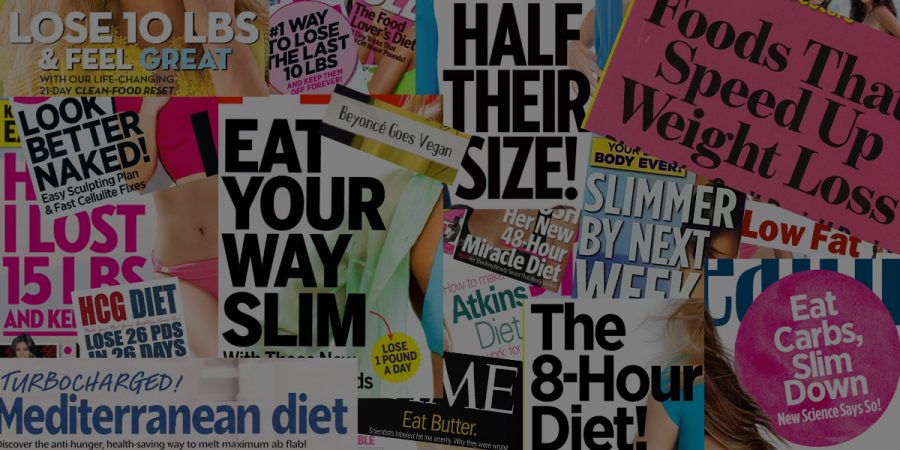Starving the media
Media stereotypes create deadly impressions
My grandma gave me a Keto For Women diet magazine when she came to make dinner for us one night.
She was trying to be sweet, trying to encourage me to continue to lose more weight. She had good intentions, but her actions had the opposite effect. It gave me the validation that it was okay to keep hurting myself both mentally and physically.
To keep skipping breakfast, and lunch, and on the days I could, dinner. It gave me another reason to keep logging my calories in the fitness app that my mom suggested I download, and it fueled my daily weigh-ins even more.
In my head, the magazine gave even more power to the voice that called me “fat” and “weak” and worst of all “a waste of space.”
Anorexia and bulimia are selfish diseases. The voice in my head doesn’t care how others may feel about me wasting away because this feels too distant to be suicide.
I still care about plenty of other things: my homework, my friends, my family. However, eating, not eating, food, and numbers are the loudest thoughts in my brain. I’ll find myself acting how I normally would, but for a different reason. Before, I would walk my dog so we could both go outside and breathe for a while. Now, I walk my dog to burn calories, counting my steps and minutes religiously.
I can do most weight conversions seamlessly. I can probably tell you how many calories in the last meal you ate because hopefully–for you–food is still food, not numbers and shame.
I’m at a healthy weight. I don’t look sick or starved. No one thinks twice if I skip a meal here or there as long as I remain smiling and strong, because losing weight is usually considered good, and it can be, until it goes too far.
The problem is that once it gets too far, recovery seems almost impossible.
Eating disorder culture is everywhere, hiding under masks of “low carb diets” and “intermittent fasting.” It’s all the same. At the end of the day, diets can cause harm in the hands of the wrong person.
According to the National Association of Anorexia Nervosa and Associated Disorders (ANAD), at least 30 million people of all ages and genders suffer from an eating disorder in the U.S alone. In other words, at least 30 million people struggle with something most people don’t think twice about.
Eating disorders kill.
They have the highest mortality rate of any mental illness (ANAD), but still go unnoticed by most unless the person suffering is skin and bones.
Skipping meals and counting calories are not normal teenage behavior. I beg adults, the media, and anyone reading this, please do not normalize these behaviors at any age. Recognize anorexia and other eating disorders are painful, consuming disorders that can affect anyone, not just teenage girls.
Being immersed in magazines, movies, and social media that promote idiotic things like “skip dinner wake up thinner” and “the perfect body” creates negative body image that can be solved with what seems like a simple, but deadly solution.
The media needs to understand that eating disorders aren’t romantic, or tragic in the Hollywood glamour type of way.
I’ve seen countless ads and commercials telling people that they need to change their eating habits from safe, healthy meals, to obsessing over their food to prove their worth.
I’m not saying diets are bad, diets can definitely help different aspects of the brain and body if a doctor approves it. I’m saying that by growing up around media that offers extreme weight loss tips and disordered eating, it’s no wonder that people are taking these diets too far.































